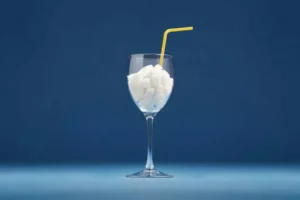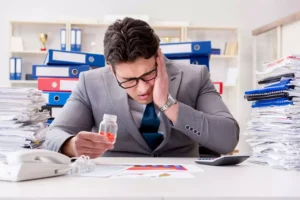
Also, if you have multiple, unexplained bruises or a bruise that keeps returning to the same area, your doctor may order tests to pinpoint the cause. Tests may include X-rays to check for bone fractures and blood tests to check for clotting disorders and vitamin deficiencies. Among the more serious causes of bruising is leukemia—a cancer of the blood cells. Typically, platelets help your body minimize bleeding, but you’ll be more susceptible to bruising if your platelet count is low due to leukemia. Only a doctor can diagnose leukemia, so set up an appointment if you have concerns. Too much sun exposure can damage and weaken your skin, as well as weaken the walls of your blood vessels, leaving you more susceptible to bruising.
- Platelets help the blood clot, so a low level of them can cause easy bruising.
- Older adults often bruise more easily because the skin becomes less flexible with age, and there is less fat to protect the blood vessels.
- ARLD does not often cause symptoms until it’s reached an advanced stage.
- Older people are much more susceptible to bruising easily, too, because skin becomes thinner and blood vessels become weaker as we age.
- Finally, one potentially serious cause of alcohol and bruising is alcohol liver disease.
- Additionally, research has shown that alcohol may alter the composition of helpful microorganisms in your gut.
Do older adults bruise more easily?

Cirrhosis can cause a host of other health problems, including high blood pressure, which can lead to the development of enlarged veins in the esophagus called esophageal varices. These are similar to the varicose veins that some people develop in their legs. But esophageal varices are prone to rupture, and when they do, the alcoholic can bleed to death. Even do you bruise easier when drunk though alcohol has become a significant part of everyday life, early-stage alcoholics often deny that they have a problem and may be defensive about their drinking. They may also rationalize, or make excuses, for their behavior and insist they can stop drinking whenever they feel like it. At this stage, the alcoholic may appear to be functioning normally and is unlikely to have performance problems at work, school or in other settings.
Liver Disease

They may have such a high tolerance that they do not show any overt signs of intoxication, despite drinking large amounts. Topical and systemic corticosteroids can be used to treat various conditions, including allergies, asthma and eczema. Certain dietary supplements, such as ginkgo biloba, also can increase bruising risk due to a blood-thinning effect.
What are the most common causes of Antiphospholipid Syndrome?
Taking certain medications (aspirin, steroids) and drinking alcohol can also encourage this type of bruising to form. Older people are much more susceptible to bruising easily, too, because skin becomes thinner and blood vessels become weaker as we age. Low vitamin C levels can cause scurvy, which in turn can cause easy bruising. This is because vitamin K helps the body form clots to stop bleeding. Your body’s ability to form a proper clot can be affected if you don’t have enough platelets (low platelet count) or they aren’t functioning properly. This anemia can result from a variety of circumstances, including inadequate iron in your diet or chronic bleeding.
Why Do I Bruise Easily?
If you experience easy bruising with alcohol consumption and there is no apparent cause of the bruising, it’s important to seek medical attention, because you may be experiencing liver disease. If you bruise easily, your inability to form clots may be the result of an underlying medical condition. The formation of blood clots relies on good nutrition, a healthy liver, and healthy bone marrow. If any of these factors are slightly off, bruising can occur more easily. First, alcoholics are more likely to fall and injure themselves, which can cause bruising.

And since alcohol is a diuretic, you’ll probably visit the bathroom more frequently at night, which can significantly hinder sleep. In short, alcohol may increase your risk of experiencing gastritis and digestive symptoms. Additionally, drinking can aggravate certain skin conditions, such as psoriasis and rosacea. Meanwhile, binge drinking focuses more on how quickly and how much you drink in one sitting. The CDC defines binge drinking as drinking that brings your blood alcohol concentration (BAC) to 0.08% or more.

Synthetic versions of these clotting factors can help treat hemophilia and reduce the risk of what is alcoholism serious bleeding and bruising. As the disease progresses to the middle stage, drinking continues to increase and dependency develops. Strong cravings for alcohol are typical at this stage, and drinking isn’t just for enjoyment anymore. Because the body has adapted to deal with an alcohol-rich environment, the alcoholic physically needs it to avoid the painful symptoms of withdrawal. It is important to note diabetes itself is not a direct cause of bruising.
What Is The Most Popular Program For Recovering Alcoholics?
- Below, a highlight reel of possible reasons behind your bruises to help you — with an assist from your doctor — get to the bottom of why you’re always black and blue.
- Yes, alcohol can affect your blood clotting by thinning the blood and reducing the ability of platelets to clump together, which can lead to easier bruising and bleeding.
- When this happens, blood leaks out of the vessels and initially appears as a dark mark.
“Any disruption of the normal liver function lowers these protein levels,” says Dr. Ehsan Ali, a Los Angeles-based board-certified physician. Type 1 is the mildest, type 2, and type 3 which is the most severe. Contact your GP for advice if you have a history of regular alcohol misuse. Hello, my name is Ben Lemmon, and I’m the Vice President and Clinical Director at Ohio Community Health Recovery Centers.
How can I prevent or treat bruises?
- Even a vitamin B12 deficiency can contribute to low platelet counts.
- “Both of these conditions make you more susceptible to developing bruises.”
- Meanwhile, binge drinking focuses more on how quickly and how much you drink in one sitting.
- It increases the risk of various types of cancer, as well as high blood pressure, heart disease, and stroke.
- Because alcohol is a potent diuretic, it can quickly dehydrate you, leading to the characteristic symptoms of a hangover, including a throbbing headache.
They may also develop large bruises after minor injuries or have bruises that take many weeks to heal. While end-stage alcoholism is a dire situation, it’s not a hopeless one. Late-stage alcoholics can get better if they seek treatment, and some of their health problems can even be reversed if caught early enough. The early or adaptive stage of alcoholism marks the beginning of an alcoholic’s struggle with addiction. At this point, drinking is no longer just a casual social activity — it’s become a daily habit that may be used to cope with stress, anxiety or other emotional problems.



![{"detail":[{"order":1009,"description":"Ошибка Записи Данных В БД"}] {"detail":[{"order":1009,"description":"Ошибка Записи Данных В БД"}]](https://localhost:8086/proceum/blog/wp-content/plugins/contextual-related-posts/default.png)